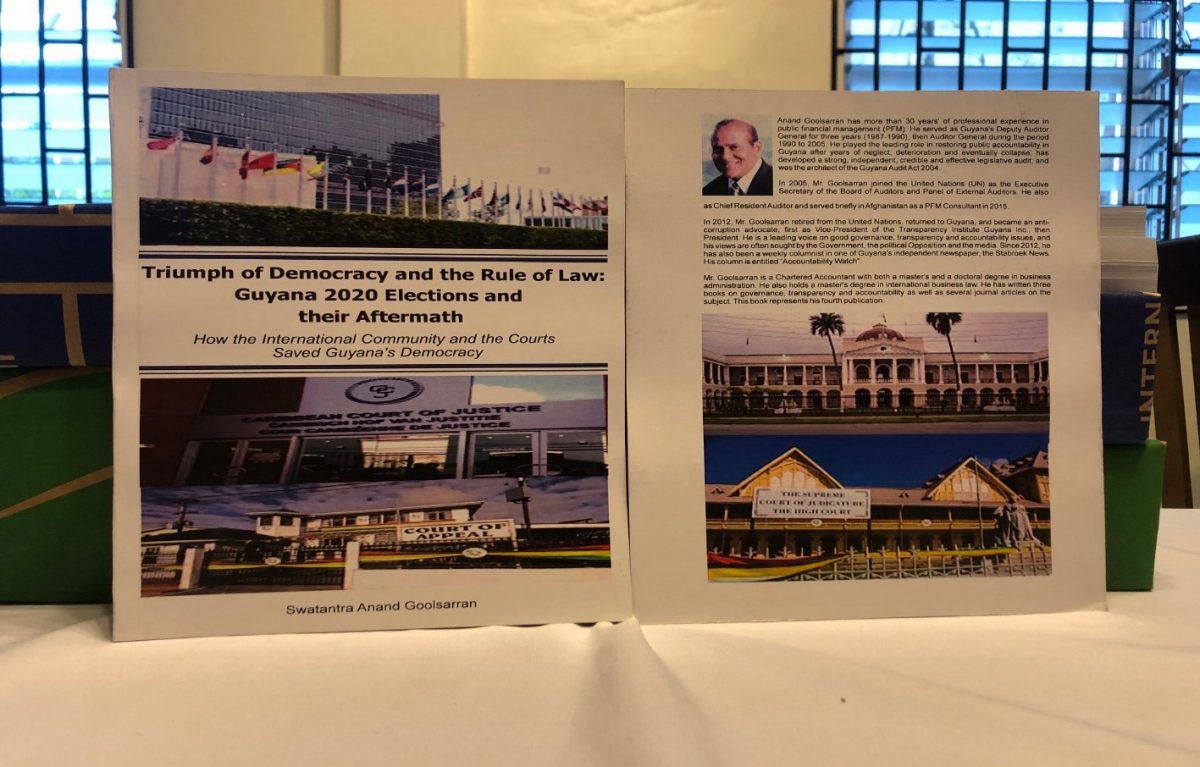Former Auditor General, Dr. Anand Goolsarran, has published a book on Guyana’s 2020 General and Regional Elections and argues that democracy is crucial to accountability.
The book is titled “Triumph of Democracy and the Rule of Law: Guyana 2020 Elections and their Aftermath” along with the sub-title “How the International Community and the Courts Saved Guyana’s Democracy”.
The book is based on weekly articles that the author had written for the Stabroek News in his “Accountability Watch” column during the period leading up the 21 December 2018 vote of no confidence in the Government and up to the swearing in of President Irfaan Ali on 2 August 2020.
In the introduction to the book, Goolsarran cited two reasons as his motivation for the publication. He stated that, given his training and experience at both at the national and international levels, he has come to the strong belief in the strict adherence to all the tenets of democratic governance, including respect for the rule of law and rulings of the courts, full transparency in conducting the affairs of the State, and the highest forms of public accountability. He asserted that:
For countries that embrace democratic forms of government, it is fair to state that a strong positive correlation exists between democracy and accountability. Democracy and accountability can be viewed as the twin sides of the same coin. In the most rigorous analysis of the relationship between the two, more often than not, it will be found that democracy leads to accountability which in turn leads to development. On the other hand, a lack of democracy leads to a lack of accountability which in turn stagnates development. Accountability is indispensable to any form of democratic governance.
Additionally, by tracking developments during the 20-month period in question, Dr. Goolsarran indicated that he was able to provide a weekly account of what transpired, as both sides of the political divide battled tooth and nail in an attempt to accede to political office.
The book contains 41 chapters and is in two parts. The first part comprises 19 chapters and tracks events from the date of the no confidence vote to just prior to the March 2nd 2020 elections. Part II comprises 22 chapters and covers the five-month period from the date of the elections to the swearing in of the new President.
Persons interested in acquiring a copy of the book can email the author at swatantra.goolsarran@gmail.com.






